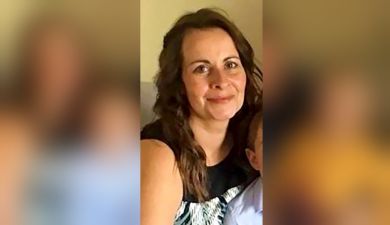Two psychiatrists have told the trial of Deirdre Morley, who is accused of murdering her three children at their family home, that she fulfills the criteria for a special verdict of not guilty by reason of insanity.
The jury will return to the Central Criminal Court tomorrow to consider its verdict having so far spent one hour and 28 minutes deliberating.
Both expert witnesses were in agreement that the nurse was suffering from a mental disorder at the time, was unable to appreciate that what she did was morally wrong and would not have been able to refrain from her actions.
Consultant forensic psychiatrist Dr Brenda Wright from the Central Mental Hospital, who was giving evidence today for the defence, said the accused was suffering with bipolar affective disorder at the time. She said the defendant believed it was morally right to smother her three children as she was of the opinion that she had "irreparably damaged" them and "had to put an end to their suffering".
Severe depressive episode
Dr Mary Davoren, for the prosecution, testified that the accused was suffering from recurrent depressive disorder at a minimum and experienced a severe depressive episode on the day. The witness said the accused knew she was killing the children as she had checked their pulses afterwards.
However, Dr Davoren said the severity of her depression impaired her ability to appreciate that what she was doing was wrong, and she lacked the ability to refrain from committing the acts due to the nature of the symptoms she was suffering from.
The 44-year-old, of Parson's Court, Newcastle, Co Dublin, has pleaded not guilty by reason of insanity to the murder of her sons Conor McGinley (9) and Darragh McGinley (7) and her daughter Carla McGinley (3). The children's bodies were discovered at the family home just before 8pm on January 24 last year.
The court heard yesterday that Ms Morley had unsuccessfully attempted to drug her three children on the previous evening, having formulated a plan to then suffocate them in their sleep.
She crushed six to eight morphine tablets to put in the boys cereal and put a Tylex tablet containing codeine in her daughter's sippy cup. However, the accused told gardai in her interviews that the boys spat it out when they tasted the food and Carla had not consumed much of the drink.
In what the State said was "a desperately sad case", the jury heard that on the next day Ms Morley used tape, plastic bags and cushions to smother the children, two of whom were killed in a play tent.
Interviews
On the second day of the trial today, Dr Wright told defence counsel Michael Bowman SC that she interviewed the accused on three occasions at the Central Mental Hospital following the killing of her three children.
The witness said the accused told her that her mother had died at the age of 83 in 2015, and they were "very close, a bit too close".
Ms Morley completed nurse training in Cork in 1999 and was later appointed as a clinical nurse specialist in Our Lady's Children's Hospital in Crumlin. At the time of the incident she was on sick leave from her post. She described herself as a "bit of people pleaser" in work and had difficulty asserting her authority.
We wanted the same things and slotted into each other's lives quite easily
Ms Morley met her husband Andrew McGinley in 2002 and they were married in 2008. "We wanted the same things and slotted into each other's lives quite easily," she said. They had some difficulties at the start when she had attended counselling for anxiety, but their relationship improved in 2009 when she became pregnant with their first child.
She described her husband as being "very paternal" and "loving kids", saying: "We really came together when we had kids. I wonder how much of our struggles were my struggles, me looking at our relationship through a negative lens".
Ms Morley said that six months prior to the event had been the most difficult time in their relationship as they were talking less and only engaged to speak about logistics. They attended couples counselling in September 2019 and said she never stopped loving him as he was a "really good guy".
First difficulties
Dr Wright said that the accused first experienced mental health difficulties in 1996 after she moved to Cork to study nursing. She attended a GP with her mental health concerns for the first time in 1998.
In 2001, Ms Morley was studying paediatric nursing in Dublin and said she felt overwhelmed by her course work. She became a post clinical nurse in 2009 and had "an increasing fear about something happening on my watch".
She would call the ward on her days off to check on her child patients, which the accused described as "not that unusual but a bit much".
She then attended a counsellor twice a week due to sleep disturbance, but her mental health improved when she was pregnant with her first child. There was disturbance in her mental health in 2010 when she became concerned that her eldest child was not taking regular naps and feeding a lot.
She returned to counselling in 2014 and took 12 weeks off work in March 2018 as she found it too stressful. She was unable to enjoy her time with her children, became more reclusive and could not get through the day without a nap.
Her GP prescribed her antidepressants in October 2018, and she was referred to Clondalkin Mental Health Services. In March 2018, she was reporting stress from minding her three young children, had difficulty sleeping and was overwhelmed at the prospect of returning to work.
In July 2018, Ms Morley denied any suicidal thoughts to her counsellor but said she "wanted to get away", was overwhelmed looking after the children and felt guilty she could not be there for her family so she continued taking the antidepressants.
Concerns
The following month she was referred to the local psychiatric services and expressed concerns to her GP about her ability to cope with the children so her antidepressants were increased. Dr Wright agreed with Mr Bowman that a recurring theme in her reports was of her struggling to cope, being overwhelmed and her anxiety impacting on her children because of her mental health. She returned to work for one day a week in January 2019 but continued to feel anxious.
In February 2019, it was noted that she described experiencing a fantasy of being in an apartment in Paris without her children. She expressed concern that her mental health difficulties were impacting on her as a parent and wife.
She was admitted to St Patrick's Hospital in July 2019 after feeling overwhelmed. She displayed excessive guilt and poor self-worth. It was noted that she suffered psychologically following the death of a young patient in her care and was later discharged. Her sister contacted her GP in November 2019 and reported that Ms Morley had deteriorated significantly and was not getting up to bring her children to school, was withdrawn and was feeling flat. "It was noted she had a passive death wish but no suicidal ideation and had commented 'I just want to evaporate'," said Dr Wright.
Huge guilt
Ms Morley was finding herself unable to manage her children at home and felt huge guilt about the impact of her illness on them. Psychiatric services saw her again in December 2019 and found that she had an inability to feel pleasure and was not able to enjoy normal things.
On January 10th 2020, Ms Morley went to her GP and said things were very hard at home as the boys were "acting out". Dr Wright agreed that the accused had a skewed sense of her children's behaviour and she had first started to think about killing her children on January 20 or 21.
Ms Morley said her children had been ruined by her bad parenting and mental illness and she felt they were "doomed." She felt she could not take them with her and thought they would be irreparably damaged if she had committed suicide. "I thought it was the right thing to do, the hard thing but the right thing," she said. Dr Wright said the accused was to some degree masking the extent of her difficulties from those close to her and this eventually developed into a major depressive disorder.
I wish I could go back in time. I just felt they were so damaged
In an interview with a psychiatrist in March 2020, Ms Morley said when her son told her that she was mean and said "you are ruining my life", she knew this was another confirmation that she needed to "do" her plan.
Dr Wright said she accessed Ms Morley's records after she was discharged from Tallaght Hospital on January 26, where she said: "I wish I could go back in time. I just felt they were so damaged. I don't think I had another option. I wasn't suppose to be here [referring to her failed suicide attempt]." The following day, it was noted that she said: "I wish I had a time machine".
Bipolar
In summary, Dr Wright diagnosed her with suffering from bipolar affective disorder, which is characterised by a depressive episode with at least two hyper manic episodes.
Dr Wright said that Ms Morley had between 1998 and 2017 experienced anxiety symptoms in response to the stresses of life and work, bullying at work and adapting to parenting.
The expert witness said Ms Morley developed significant depressive symptoms in 2018, which persisted and deteriorated in October of that year and she was put on antidepressants.
In 2019, Dr Wright said the accused experienced depressive themes in her thinking and described being overwhelmed. She felt she was inadequate in her role as a wife and mother and was concerned that her own mental health problems were impacting negatively on her children, said the witness.
During the middle of 2019, Ms Morley began experiencing suicidal ideation, which led to her first psychiatric admission and her mental health deteriorated again from November of that year, she said. "Her illness continues and she expressed a belief that her illness was damaging her children," she added.
Dr Wright said the accused displayed recurring thoughts of death and had a passive death wish in the months prior to the killings and began to think about suicide. She had experienced suicidal ideation and felt the plan to kill herself and her children was necessary and urgent and could identify no alternative, she added.
Jury decision
To meet the verdict of not guilty by reason of insanity, the jury must find that Ms Morley was suffering from a mental disorder such that she should not be held responsible for the killings because she did not know the nature and quality of her actions, or she did not know what she was doing was morally wrong, or was unable to refrain from committing the act.
The witness said Ms Morley had a mental disorder, specifically depression and she knew the nature and quality of her actions and that it would result in the deaths of her three children.
However, Dr Wright said that the accused did not know that her actions were wrong as part of her psychotic state and believed they were morally right. "She believed she had irreparably damaged her children and had to put an end to their suffering," she said. Dr Wright said Ms Morley was unable to refrain from her actions as a result of her depressive psychosis and fulfilled the criteria for a special verdict of not guilty by reason of insanity.
Dr Davoren told prosecution counsel Anne-Marie Lawlor SC that the accused was suffering from a severe depressive disorder at the time and her mental health was difficult to assess accurately as it could change rapidly.
Despite the best efforts of those around her and the level of support they offered, it was not enough to prevent her slipping into an area from which she could not return
In his closing speech, defence counsel Michael Bowman SC said the overwhelming evidence in the case was in accordance with the psychiatric evidence and the two psychiatrists were in agreement that the appropriate verdict was not guilty by reason of insanity.The case was a tragedy of enormous proportions, he said, visited upon parents that were utterly committed to the welfare of their children.
He highlighted that the tragic loss of three young children's lives was at the core of the case. Ms Morley had committed her entire professional life to the care of children as a paediatric nurse and had suffered from depression and anxiety since the late 1990's, he said. "Despite the best efforts of those around her and the level of support they offered, it was not enough to prevent her slipping into an area from which she could not return," he concluded.
No contest
In his charge to the jury, Mr Justice Paul Coffey said there was no contest in this sad and tragic case about what the correct verdict should be. He said the evidence was all one way and both the prosecution and defence agreed that the defence of insanity applied.
After considering their verdict for over an hour, the jurors told the judge they wanted to resume their deliberations tomorrow.
In her opening address, prosecuting counsel Anne-Marie Lawlor SC said the jury's primary concern would be the accused's mental state on January 24 and there was no issue in the case as to what happened to the children and how they died.
Detailing the evidence that would be heard, Ms Lawlor said the accused's mental health had deteriorated very significantly and she suffered a breakdown in July 2019 and was admitted to St Patrick's Hospital in Dublin as an inpatient for four weeks. "In the days before the children's deaths, there was a belief that her mental health had improved significantly and psychiatrists will assist you in that was not the case," she indicated.
On the day of the killings, the eldest boy Conor McGinley told her "Stop Mammy" as she suffocated him by putting a plastic bag over his head and she had replied "I'm sorry", the jury also heard.
Bodies
The Central Criminal Court was also told that her husband Andrew McGinley discovered the bodies of his three children in the house, two of them upstairs in his bedroom and one downstairs in a play tent.
Two notes written by the accused had been left in the house, one at the bottom of the stairs, to urge whoever came through the door of the family home not to go into the front room or upstairs and to phone 911 instead.
The court was told that the accused was suffering from a mental disorder when she caused the deaths of her three children and believed their best interests would be served by taking their lives as she had damaged them.

Ms Morley told gardaí that she wanted to save her children from the “pain and suffering” she felt lay before them because of her shortcomings as a parent, and that she had intended to kill herself after she had killed her children.
Evidence was given that she had been struggling with her mental health in the year leading up to the tragedy and Clondalkin Mental Health Services and the Swiftbrook Medical Centre had also written to St Patrick's Hospital requesting that Ms Morley be readmitted to inpatient psychiatric care due to concerns about her mental health.
Ms Morley, the court heard, had been finding it difficult to cope with stress at work and had taken the loss of a child in her ward particularly badly.
The trial continues tomorrow.







